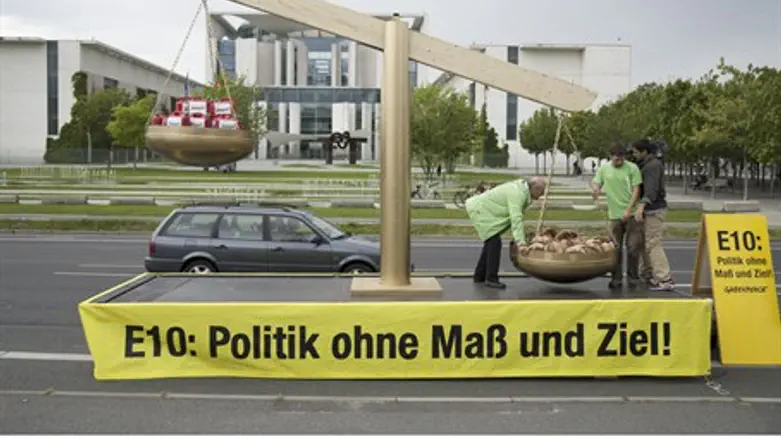
One of the "under the radar" stories this year, one that may prove very influential, is the continued rise in food prices prompted by droughts in global breadbaskets such as the United States. Such price rises will create instability in third world countries, where most family income is spent on food.
This was perhaps the final nudge for the European Union to rethink its policy on biofuels, promulgated in 2009. As grain-produced oil could be classified as a renewable supply of energy (you can replant the crop every year), it seemingly justified a EU target of 10% of energy for the transport industry to be derived from crop-based biofuels. Such fuels qualified for EU subsidies that made their production lucrative. Additionally, it was assumed that biofuels would be more environment-friendly than conventional fuels.
The EU is now reversing course, because the savings in carbon emissions have not fulfilled expectations and may even have backfired. To create more land for growing biofuels, forests were cut down and their salutary influence on soaking up carbon emissions was lost. The subsidy also made it more advantageous to grow crops for fuel rather than for food, forcing food prices up. Finally, the assumption about biofuels being cleaner than conventional fuels has not been sustained.
A new draft emerging from the European commission has now set an upper limit of 5% for biofuels in the transport sector, a slight increase from the current 4.5% use. What is more important is that the new guidelines presage a change in policy and the removal of the subsidy:
"The [European] Commission is of the view that in the period after 2020, biofuels should only be subsidised if they lead to substantial greenhouse gas savings ... and are not produced from crops used for food and feed."
The u-turn by the European Union creates its own set of problems. The 10% target by 2020 is unlikely to be met, although the new favorites are biofuels that do not make intensive use of land, such as algae.
Biofuel industries that sprang up in response to the original policy guidelines may now be forced to close once the subsidies are removed. Subsidies will not be removed immediately, but only in 2020. However, once they are gone, a €17 billion industry that accounts for 50,000 jobs will no longer prove viable and the policy switch will serve as a disincentive to those who would hitch their wagon to EU environmental policy.
